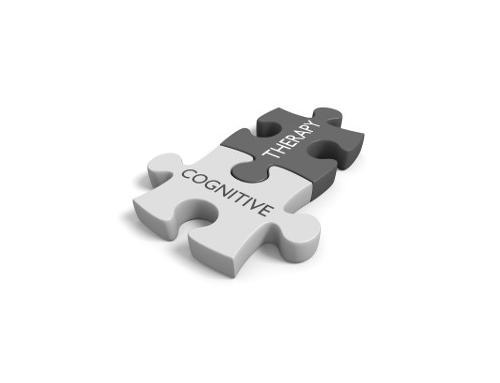 Dialectical behavior therapy (DBT) is a form of cognitive-behavioral psychotherapy developed by psychologist Marsha Linehan in the late 1980s. While DBT was first created to better treat borderline personality disorder, it has been used to treat a variety of mental health disorders since its development such as depression, bulimia, binge-eating, bipolar disorder, post-traumatic-stress disorder, and substance abuse. Dialectical behavior therapy was designed to target the psychosocial symptoms of borderline personality disorder. The theory behind the creation of DBT was that some individuals’ arousal levels increase much more quickly during certain emotional situations (particularly in their relationships with family, friends and romantic partners) than the average person’s, eliciting a higher level of emotional stimulation, and taking longer to return to baseline levels of arousal.
Dialectical behavior therapy (DBT) is a form of cognitive-behavioral psychotherapy developed by psychologist Marsha Linehan in the late 1980s. While DBT was first created to better treat borderline personality disorder, it has been used to treat a variety of mental health disorders since its development such as depression, bulimia, binge-eating, bipolar disorder, post-traumatic-stress disorder, and substance abuse. Dialectical behavior therapy was designed to target the psychosocial symptoms of borderline personality disorder. The theory behind the creation of DBT was that some individuals’ arousal levels increase much more quickly during certain emotional situations (particularly in their relationships with family, friends and romantic partners) than the average person’s, eliciting a higher level of emotional stimulation, and taking longer to return to baseline levels of arousal.
DBT works collaboratively, between the therapist and client, to help a person identify their strengths and build upon them, identify maladaptive thoughts beliefs and assumptions in order to change them. DBT may incorporate homework assignments, the role-playing of social interactions, and or self-soothing exercises.6 DBT usually incorporates two components: individual weekly psychotherapy sessions and weekly group therapy sessions, although it may also be that an individual chooses one over the other.
Individual therapy sessions focus on assessing and strengthening problem-solving behavior. The main priority in individual therapy is to curb self-injurious and suicidal behavior, followed by behavior that could interfere with the therapeutic process. Throughout this process, therapists may work with a client to improve their quality of life, social skills, and improving their self-image. It is not uncommon that telephone contact with the therapist occurs as a part of DBT while a therapist coaches their client through managing crises.11 In group therapy, on the other hand, individuals learn interpersonal effectiveness, distress tolerance/reality acceptance, emotional regulation, and mindfulness skills.
DBT for Borderline Personality Disorder
The bulk of the evidence supporting dialectical behavior therapy as an effective treatment method exists within the literature on borderline personality disorder (BPD). Patients with BPD who have completed sessions of DBT group therapy have demonstrated noteworthy improvements in depression18,15 and suicidal ideation than patients with the same disorder who received non-DBT individual therapy.7. The same has been shown for parasuicidal/suicidal, behavior,24,18 non-suicidal self-injuries,5,15 with patients who receive DBT being 2.4 times less likely to attempt suicide and one and a half times less likely to engage in self-injurious behavior.8
Patients who completed even a short-term partial hospitalization DBT program showed decreases in their levels of hopelessness, anger expression, dissociation, and general psychopathology.26 Finally, individuals with BPD who receive dialectical behavior therapy also demonstrate decreases in experiential avoidance and expressed anger, above and beyond those who receive other community treatment by experts.17 Although individuals with BPD frequently have significant impairment in social and occupational functioning, individuals who receive DBT show a greater reduction in the self-destructive behavior4 which may used to regulate emotion such as substance abuse, risky sexual behavior, and impulsive spending than individuals who receive treatment as usual or CBT.15 Although, this may be related to the completion of DBT being associated with better prospective functioning, which is then associated with lower emotional dysregulation.25
The evidence supporting DBT for borderline personality disorder is quite substantial, indicating that DBT does benefit those with this disorder. DBT, by itself and in combination with other protocol such as prolonged exposure, has been deemed a feasible and safe to administer treatment method for borderline personality disorder.8. With all of this said, the extent of this effectiveness is controversial, with some randomized controlled trials indicated a response rate of 45%, with 31% of patients’ symptoms remaining unchanged, and 11% deteriorating,10 suggesting that more robust evidence may still be needed.19
DBT for Other Mental Health Conditions
Despite its efficacy in treating BPD, an increasing body of evidence suggests that DBT may be useful in treating a range of other mental health conditions. Several studies that have been conducted in mixed-diagnostic samples indicate that regardless of the disorder (mood disorders, anxiety disorders, and/or substance use disorders), DBT-based interventions may be effective in increasing hope and reducing depression and anxiety22 as well as decreasing emotion dysregulation and increasing skills use.16 DBT works in treating other mental health conditions in similar ways that it works in treating BPD. For bipolar disorder (BD), for example, DBT has been found to be associated with improved psychological well-being and decreased emotion reactivity, skill acquisition in the areas of mindfulness, emotion regulation and distress tolerance3 as well as decreased depressive symptomatology and increased self-efficacy in those with BD.23
Some evidence also supports the efficacy of DBT in reducing anxiety,9 rates major depressive disorder and the suicidal tendencies that may accompany it.13 Preliminary evidence also supports that this efficacy may extend to the treatment of persistent complex bereavement disorder and persistent depressive disorder.1 Further, it has been suggested that DBT may be efficacious for decreasing episodes of disordered eating, among women and adolescents in particular.5,12 For adolescents with eating disorders, DBT was associated with lower scores on the Global Eating Disorder Examination, a reduced frequency of binge episodes and a decreased frequency of purging.5 DBT has also been shown to reduce treatment interfering behaviors, psychiatric and medical hospitalizations in individuals diagnosed with eating disorders.4
Considering that there is high comorbidity (as high as 65%) between borderline personality disorder and substance use disorder (SUD),21 it is not surprising that DBT has also been supported as a potential treatment for SUD. Evidence suggests that dialectical behavior therapy was effective in increasing emotional regulation and distress tolerance in substance abusers,14 with the substance use disorders of 96% of adolescents in some samples being “recovered” or “improved” after DBT in a residential treatment center.2
Considering the literature reviewed here, it may be that in coming years, with more randomized controlled studies, DBT becomes more widely recognized as a treatment for a variety of disorders other than BPD. The patterns found in preliminary evidence related to its efficacy are optimistic and should be considered further.
1. Barrett, J., Tolle, K., & Salsman, N. (2017). Dialectical Behavior Therapy Skills Training for Persistent Complex Bereavement Disorder. Clinical Case Studies, 16(5), 388-400.
2. Beckstead, D., Lambert, M., DuBose, A., & Linehan, M. (2015). Dialectical behavior therapy with American Indian/Alaska Native adolescents diagnosed with substance use disorders: Combining an evidence based treatment with cultural, traditional, and spiritual beliefs. Addictive Behaviors, 51, 84.
3. Eisner, Eddie, Harley, Jacobo, Nierenberg, & Deckersbach. (2017). Dialectical Behavior Therapy Group Skills Training for Bipolar Disorder. Behavior Therapy, 48(4), 557-566.
4. Federici, A., & Wisniewski, L. (2013). An intensive DBT program for patients with multidiagnostic eating disorder presentations: A case series analysis. International Journal of Eating Disorders, 46(4), 322-331.
5. Fischer, S., Peterson, C., & Hilsenroth, Mark J. (2015). Dialectical Behavior Therapy for Adolescent Binge Eating, Purging, Suicidal Behavior, and Non-Suicidal Self-injury: A Pilot Study. Psychotherapy, 52(1), 78-92.
6. Grohol, J. (2018). An Overview of Dialectical Behavior Therapy. Psych Central.
7. Harley, R., Baity, M., Blais, M., & Jacobo, M. (2007). Use of dialectical behavior therapy skills training for borderline personality disorder in a naturalistic setting. Psychotherapy Research, 17(3), 351-358.
8. Harned, M., Korslund, K., & Linehan, M. (2014). A pilot randomized controlled trial of Dialectical Behavior Therapy with and without the Dialectical Behavior Therapy Prolonged Exposure protocol for suicidal and self-injuring women with borderline personality disorder and PTSD. Behaviour Research and Therapy, 55, 7.
9. Hejazi, M., Sobhi, A., & Sahrzad, F. (2014). Effectiveness of dialectical behavior therapy (DBT) in reducing depression and anxiety in women with breast cancer. Indian Journal of Health and Wellbeing, 5(3), 392-394.
10. Kröger, Harbeck, Armbrust, & Kliem. (2013). Effectiveness, response, and dropout of dialectical behavior therapy for borderline personality disorder in an inpatient setting. Behaviour Research and Therapy, 51(8), 411-416.
11. Linehan, M. M. (2014). DBT® Skills Training Manual, Second Edition. New York: Guilford Press.
12. Lenz, A., Taylor, R., Fleming, M., & Serman, N. (2014). Effectiveness of Dialectical Behavior Therapy for Treating Eating Disorders. Journal of Counseling & Development, 92(1), 26-35.
13. Meygoni, & Ahadi. (2012). Declining the Rate of Major Depression: Effectiveness of Dialectical Behavior Therapy. Procedia – Social and Behavioral Sciences, 35, 230-236.
14. Nadimi, M. (2016). On the Effectiveness of Group Dialectical Behavior Therapy in the Enhancement of Distress Tolerance and Emotional Regulation in Substance Abusers. Research on Addiction, 9(36), 141-160.
15. Navarro-Haro, M., Botella, C., Guillen, V., Moliner, R., Jorquera, M., Baños, R., & Garcia-Palacios, A. (2018). Dialectical Behavior Therapy in the Treatment of Borderline Personality Disorder and Eating Disorders Comorbidity: A Pilot Study in a Naturalistic Setting. Cognitive Therapy and Research, 1-14.
16. Neacsiu, A., Eberle, J., Kramer, R., Wiesmann, T., & Linehan, M. (2014). Dialectical behavior therapy skills for transdiagnostic emotion dysregulation: A pilot randomized controlled trial. Behaviour Research and Therapy, 59, 40.
17. Neacsiu, Lungu, Harned, Rizvi, & Linehan. (2014). Impact of dialectical behavior therapy versus community treatment by experts on emotional experience, expression, and acceptance in borderline personality disorder. Behaviour Research and Therapy, 53, 47-54.
18. Neacsiu, Rizvi, & Linehan. (2010). Dialectical behavior therapy skills use as a mediator and outcome of treatment for borderline personality disorder. Behaviour Research and Therapy, 48(9), 832-839.
19. O’Connell, B., & Dowling, M. (2014). Dialectical behaviour therapy (DBT) in the treatment of borderline personality disorder. Journal of Psychiatric and Mental Health Nursing, 21(6), 518-525.
20. Panos, Patrick T., Jackson, John W., Hasan, Omar, & Panos, Angelea. (2014). Meta-Analysis and Systematic Review Assessing the Efficacy of Dialectical Behavior Therapy (DBT). Research on Social Work Practice, 24(2), 213-223.
21. Pennay, Cameron, Reichert, Strickland, Lee, Hall, & Lubman. (2011). A systematic review of interventions for co-occurring substance use disorder and borderline personality disorder. Journal of Substance Abuse Treatment, 41(4), 363-373.
22. Ritschel, L., Cheavens, J., & Nelson, J. (2012). Dialectical Behavior Therapy in an Intensive Outpatient Program With a Mixed‐Diagnostic Sample. Journal of Clinical Psychology, 68(3), 221-235.
23. Van Dijk, S., Jeffrey, J., & Katz, M. (2013). A randomized, controlled, pilot study of dialectical behavior therapy skills in a psychoeducational group for individuals with bipolar disorder. Journal of Affective Disorders, 145(3), 386-93.
24. Westen, D. (2000). The Efficacy of Dialectical Behavior Therapy for Borderline Personality Disorder. Clinical Psychology: Science and Practice, 7(1), 92-94.
25. Wilks, Korslund, Harned, & Linehan. (2016). Dialectical behavior therapy and domains of functioning over two years. Behaviour Research and Therapy, 77, 162-169.
26. Yen, S. B., Johnson, J., Costello, E., & Simpson, E. (2009). A 5-Day Dialectical Behavior Therapy Partial Hospital Program for Women With Borderline Personality Disorder: Predictors of Outcome from a 3-Month Follow-up Study. Journal of Psychiatric Practice, 15(3), 173-182.
by Callie Patterson
Callie Patterson is a graduate student pursuing a degree in psychological sciences at Northern Arizona University.
The content on this website is not intended to be a substitute for professional medical advice, diagnosis, or treatment. Always seek the advice of your physician or other qualified health provider with any questions you may have regarding a medical condition.





